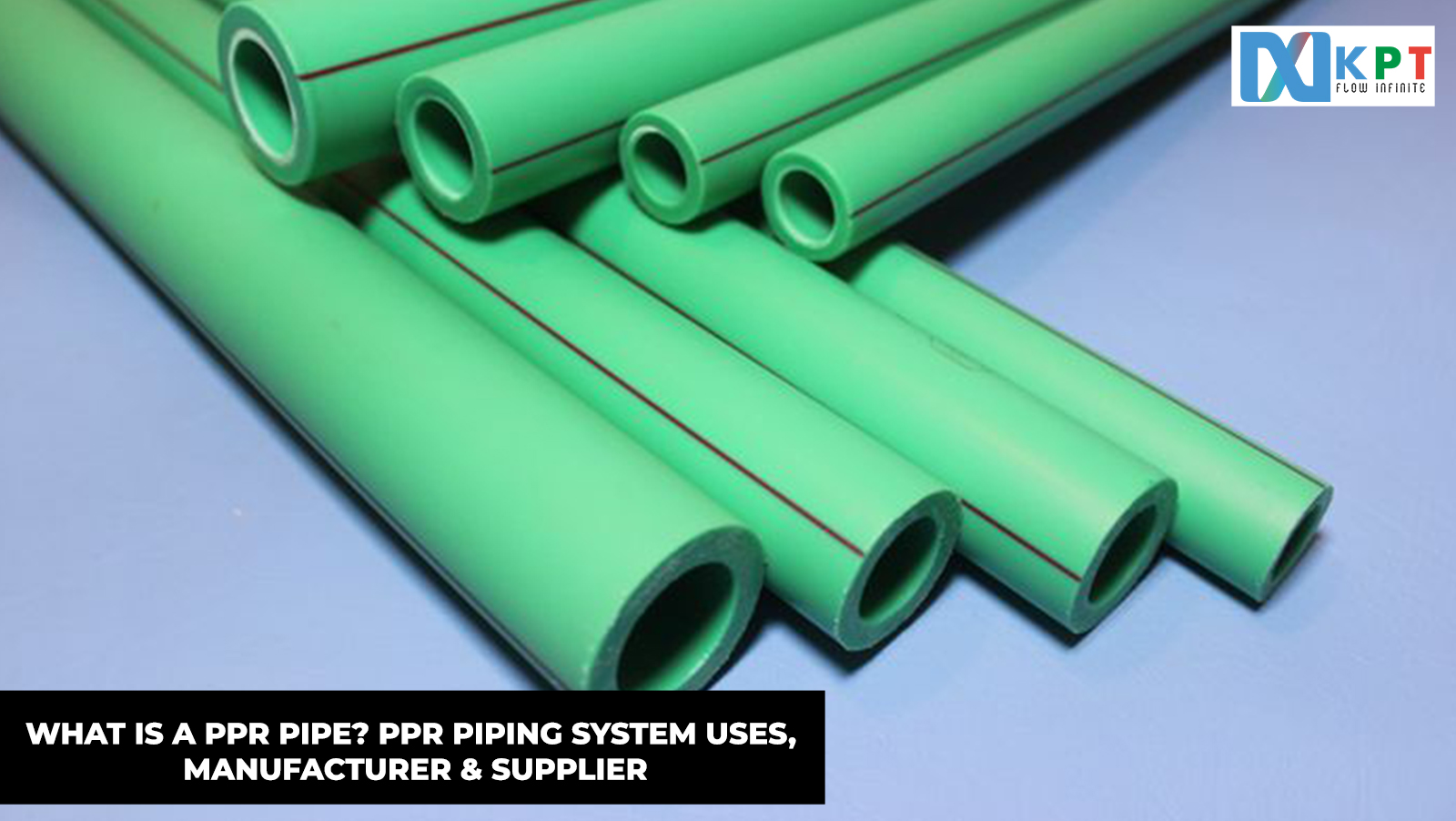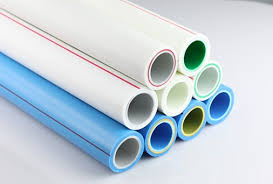
What is a PPR Pipe? PPR Piping System Uses, Manufacturer & Supplier
PPR Pipe is an important component of any plumbing system, yet few people are familiar with it. In this blog, we will discuss everything you need to know about PPR Pipe, including its applications, benefits, and how to find a reputable manufacturer and supplier in India. Read this blog till the end to find out more about this adaptable and economical pipe system.
What are PPR pipes?
PPR Pipe stands for Polypropylene Random Copolymer plastic, which is a straight and rigid cylindrical pipe. It has a low thermal conductivity, which means the temperature cannot easily conduct from the outside environment to the liquid in the pipe, making it very suitable for hot and cold water transportation.
The Durability of PPR Pipes
Furthermore, PPR pipe can remain functional for over 50 years, at a wide range of fluid and environmental operating temperatures. PPR pipe also has a very low friction coefficient, resulting in a reduction of pressure losses during fluid transport and distribution. Additionally, PPR pipe is inert to most electrolytes and chemicals, over a wide range of temperatures. Plus, it is lightweight and easy to cut and join making them economically sustainable.
PPR Pipes Applications
Major Applications of PPR Pipes
Plumbing Systems: PPR pipes are widely used in plumbing systems due to their high durability and resistance to heat, pressure, and chemicals. They are ideal for hot and cold water supply systems in homes, buildings, and industrial complexes.
Chemical Supply: PPR pipes are highly resistant to chemical corrosion and are therefore ideal for chemical supply systems. They are frequently used in chemical factories, research facilities, and other sectors where the safe and dependable transportation of chemicals is necessary.
HVAC Systems: PPR pipes offer exceptional resilience to extreme heat and pressure, making them the top choice for HVAC systems. Their superior thermal performance and corrosion resistance, coupled with their lightweight and easy installation, make them the smart alternative to metal piping.
Industrial Applications: PPR pipes are the top choice for demanding industrial applications, such as compressed air systems, cooling water systems, and process piping. Their exceptional strength and resistance to high heat, pressure, and chemicals make them the perfect solution for challenging industrial environments.
Commercial Setups: PPR pipes are ideal for commercial establishments like hotels, malls, and hospitals. They provide a reliable and sustainable solution for potable water distribution, fire sprinkler systems, and HVAC systems with low maintenance and high performance.
DN25 PPR water pipes for kitchen
Some Breifs about PPR Pipes
PPR pipes are a great choice for a variety of applications. They work in plumbing, heating, cooling, and fire protection systems. PPR pipes are resistant to corrosion, temperature changes, and pressure. Also, they are portable and simple to install. Needless to add, they have a lengthy lifespan and are inexpensive compared to PVC and UPVC pipes. On top of that, PPR pipes are environmentally friendly and can be recycled. As a result, they are a preferred option for several applications.
For instance, “PPR Pipes fit both residential structures and industrial environments.”, such as wastewater treatment plants. Additionally, some agricultural operations make use of PPR pipes due to their durability and resistance to weather conditions. The medical industry frequently uses these pipes due to their sanitary qualities. The sanitary character of the pipes is advantageous to hospitals and other healthcare facilities. These pipes have a high value in construction due to their low thermal expansion rate, resulting in lower installation costs as fewer joints and connections need to be made. The availability of a wide selection of diameters is still another advantage since it makes it simple for consumers to locate the ideal pipe for their requirements.
Use of PPR Water pipes
PPR water pipes are known for their high performance in the areas of hot and cold potable water piping, as well as their ability to handle aggressive chemicals. The inner surface of PPR pipes is very smooth, which creates a low friction coefficient. This results in greater flow rates and increased efficiency. Additionally, PPR pipes have high resistance against abrasion by hard particles. PPR is also inert to most electrolytes and chemicals, over a wide range of temperatures.
PPR pipes are very lightweight and easy to cut and join. Joining PPR pipe and fittings is performed solely through heat, creating a tight seal. As such, PPR piping systems can be installed quickly and efficiently with minimal mess.
PPR pipe has many applications for both commercial and residential use. PPR pipes can serve as a reliable solution for hot and cold potable water piping in residential, industrial, and public installations. On the commercial side, PPR pipes are ideal for transferring water, sanitary liquids, liquid food products, compressed air, and aggressive chemicals.
PPR Pipe Price
Cost is one of the most important considerations when it comes to PPR pipe systems price. The price of PPR pipes varies depending on the size, pressure, brand, and type. Depending on the market and area, prices may change. It’s best to shop around and compare different suppliers to find the best deal. Additionally, many suppliers offer discounts for bulk purchases or installation packages.
While choosing, be sure to take advantage of these promotions. It’s also wise to ensure that the manufacturer you purchase from has a good reputation and provides high-quality materials that meet all applicable standards. This will help ensure a longer lifespan for your piping system. In addition to finding a good supplier, be sure to hire a certified installer who has experience with PPR piping systems. This will help ensure proper installation and reduce problems down the road.
Last but not least, before making any selections, be sure to speak with an expert if you have any queries or worries regarding PPR pipes. They can help provide advice on what type of pipe system is right for your specific needs. You can make sure that you have a dependable and durable PPR pipe system installed in your house or place of business by using the proper knowledge and supplies.


